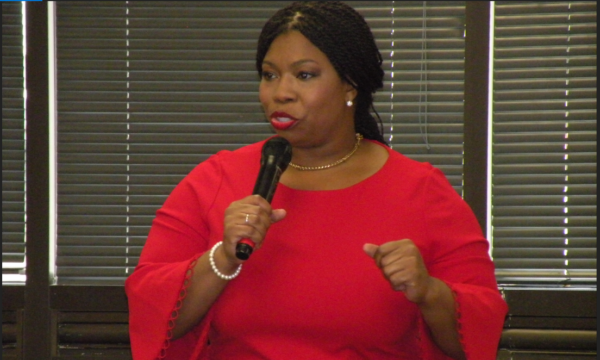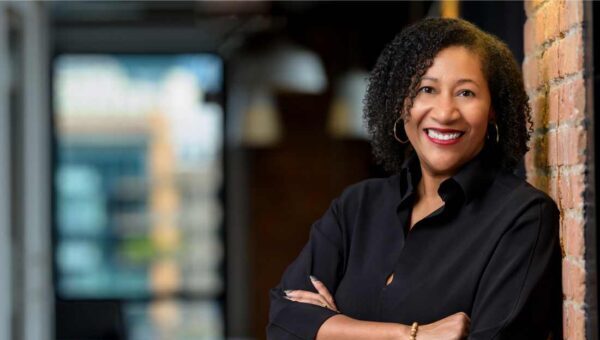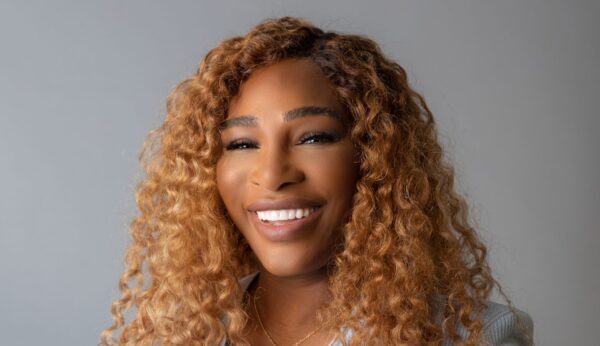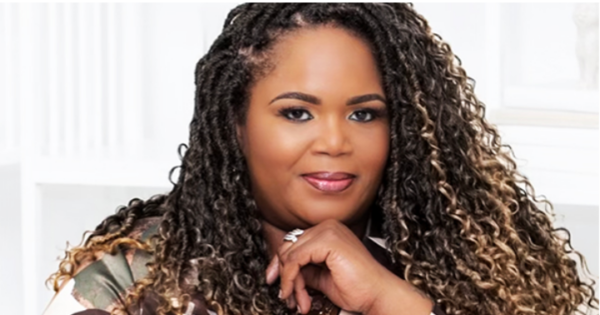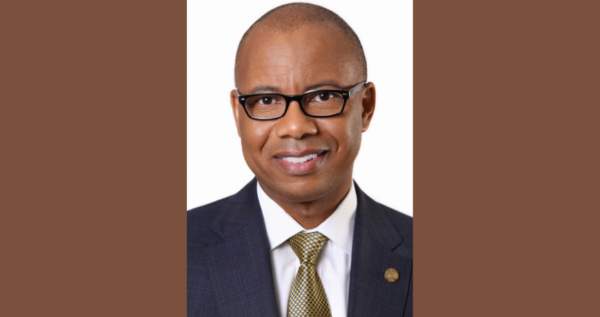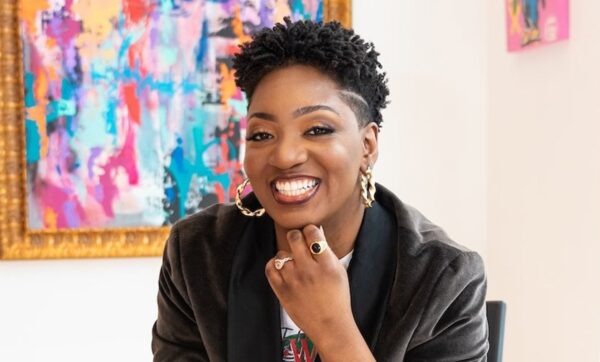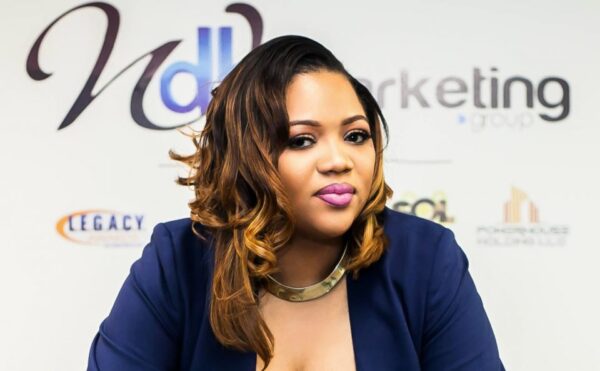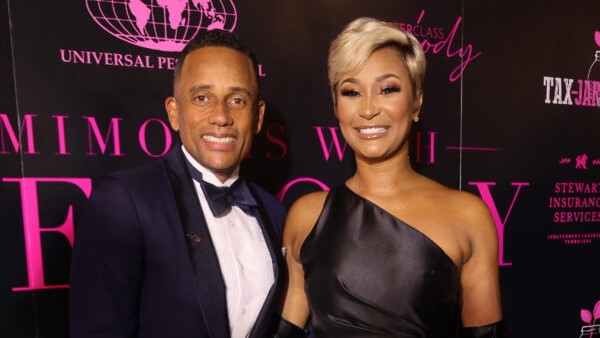Meet HERide: A Black Women-Led Company Revolutionizing The Male Dominated Rideshare Industry
Meet HERide co-founders Jillian Anderson and DeVynne Starks, who are breaking new ground as the first Black-women-owned rideshare company to secure a contract with Hartsfield-Jackson Atlanta International Airport. HERide also offers the added caveat of prioritizing women’s safety. Within the ride-sharing industry, the BWE company stands out for its commitment to safety, equity, and inclusivity above industry giants Lyft and Uber. Meet HERide, the leading female-friendly ride-sharing option in Georgia, making waves with its innovative approach to creating a safer and more inclusive ride-sharing experience. “What inspired me to
Atlanta USPS Postmaster Falonda Woods Delivers First Class Service
Real Times Media's Who's Who In Black series frequently features women who continue to impact the culture through a myriad of contributions across all sectors of society. Their groundbreaking accomplishments have changed the nation and inspired women around the world to become game-changers in bringing the promise of equality and excellence to fruition. One of those delivering on that promise is Falonda Woods, Atlanta’s second Black woman Postmaster. “Neither snow nor rain nor heat nor gloom of night stays these couriers from the swift completion of their appointed rounds." -
Dorri McWhorter: From Chicago Roots to Leadership Heights
Born in Chicago and raised between Racine, Wisconsin, and the South Side, Dorri McWhorter was destined for leadership. Her passion for advocacy and communications started early. At just 11 years old, she wrote a letter to Santa Claus, urging him to “keep people safe!” showcasing her selfless concern for others. It was at this time that she discovered her love for numbers and desire to become an accountant. McWhorter’s unwavering focus paved the path to inevitable success, and she accomplished her dream of becoming an accountant, working in the
Serena Williams’ VC Fund invested in 14 companies with a valuation of $1 billion
Serena Williams, known for her unparalleled success on the tennis court, has also established herself as a force in the investment world. Demonstrating her keen eye for promising startups leading to significant success. After retiring from tennis in September 2022, Williams shifted her focus to venture capital, founding Serena Ventures in 2014 to support women and underrepresented founders. “I learned that less than 2 percent of all VC money went to women,” Williams said in a TikTok video. “And when I first heard that, I actually thought it
Black Woman Entrepreneur Named 2024 Enterprising Woman of the Year
Roslyn Ellerbee, a prominent Black woman entrepreneur based in Atlanta who is the owner of three successful businesses, has been awarded the prestigious 2024 Enterprising Woman of the Year title. This esteemed recognition is a testament to her outstanding achievements and leadership in the business community. Roslyn is the owner of three successful businesses, including Express Errands & Courier, Dream Team Digital Marketing, and Manifesting Greatness with Roslyn V-360° Business Coaching, Roslyn Ellerbee has demonstrated a remarkable commitment to excellence and innovation. Her dedication to business development and marketing
Kenneth Kelly Named 2024 Banker of the Year by Michigan Bankers Association
Kenneth Kelly, the Chairman & CEO of First Independence Bank, was honored as the 2024 Banker of the Year by the Michigan Bankers Association (MBA). Kelly, who has spearheaded the bank's leadership since October 2017, was recognized by the MBA Board of Directors for his exceptional dedication to the association, his impactful contributions to the banking sector, his role in the success of First Independence Bank, and his distinguished record in community service. Throughout his career, Kelly has garnered a multitude of accolades and held significant positions that
Khamil Bailey and The Greenwood Plan Acquire Historic Pitt Building in Downtown Pittsburgh
The Pitt Building On Smithfield Street Is Now Black-Owned By The Greenwood Plan, A Non-Profit, Whose Executive Director Is Khamil Bailey Imagine a building that’s Downtown Pittsburgh, that’s Black-owned, that’s actively trying to become a Black mecca of sorts, full of Black-owned businesses and Black prosperity. Well, imagine no more. The New Pittsburgh Courier has learned that The Pitt Building, which takes up an entire block on Smithfield Street, from the Boulevard of the Allies to Third Avenue, has been acquired by the nonprofit organization The Greenwood Plan. The Greenwood
Entrepreneurial from Birth: Keeana Barber’s Journey to Legacy and Success
Entrepreneurship often comes to people later in life after they've explored various paths in high school, college, and beyond. But for Keeana Barber, it was different. From the moment she entered this world until she could barely remember, the spirit of ownership coursed through her blood! Witnessing her mother's resilience as a businesswoman navigating the world of fashion and art was inspiring and empowering. Despite the hustle, her mother remained steadfast in her pursuit of success. Watching her mother balance ownership with raising a family fueled Barber's own aspirations. Moreover, observing her
OWN TV Star Melody Shari, Hill Harper Host A Night of Opulence With 4th Annual Mimosas With Melody
OWN TV’s “Love & Marriage: Huntsville” star Melody Shari, hosted her 4th annual “Mimosas with Melody” highlighting an evening of opulence at the luxurious Biltmore Ballrooms in Atlanta. This black tie affair, themed “A Time for Change,” brought together a stellar lineup of special guests, business leaders, and community influencers. The theme was very fitting for this year’s event. With it being the first year Shari opened it up to being co-ed, she tapped lawyer, actor, and U.S. political candidate Hill Harper, as the keynote speaker to help drive
Pittsburgh Mayor Ed Gainey; Unfiltered and Unafraid
Two years down, and at least two more to go. Pittsburgh Mayor Ed Gainey sat down with members of the New Pittsburgh Courier editorial board on Tuesday, Jan. 23. The meeting inside the Mayor’s Office lasted for roughly 75 minutes. Mayor Gainey sat down the entire time during the interview. It might have been the first time he’s sat down that long since becoming mayor of a city that’s got 300,000 residents, and about as many issues. Over the next few weeks, the Courier will delve into the numerous topics


